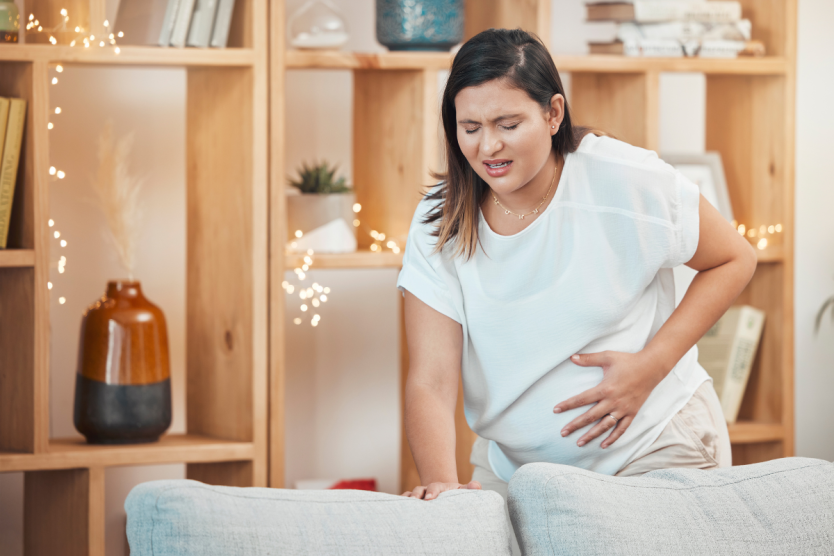Women with endometriosis suffer from painful symptoms like excessive menstrual cramps, abnormal or heavy menstrual flow and pain during sex.1
This condition, in which tissue similar to that which lines the uterus grows outside the uterus, impacts anywhere from 2% to 10% of women in the United States between the ages of 25 and 40, and up to 10% of women overall between the ages of 15 and 44.1
It can also lead to infertility or difficulty getting pregnant.1 Does endometriosis cause miscarriage?
Where Does Endometriosis Occur?
Your uterus is lined with endometrial tissue, known as endometrium. Your body grows a new endometrium with each menstrual cycle to prepare for a fertilized egg.
Endometriosis is a condition in which endometrial tissue grows outside the uterus, most often on or around reproductive organs in the pelvis or abdomen, such as the fallopian tubes, the ovaries, the lining of the pelvic cavity, the outside surface of the uterus, and the space between the uterus and the rectum or bladder. It’s more rare, but it can also grow on and around the bladder, cervix, rectum, intestines, and vagina.1
This buildup of abnormal tissue can lead to inflammation, scarring and painful cysts, as well as fibrous tissues between reproductive organs that causes them to “stick” together.1
Complications of Endometriosis
Impaired fertility is one of the complications of endometriosis. Of the 5-10% of all women who have endometriosis, most are not infertile. But 30-40% of infertile women have some form of endometriosis.2
That’s because endometriosis often obstructs the fallopian tube and keeps the egg and sperm from uniting. It can also cause damage to the sperm or egg. But many women with mild to moderate endometriosis can still conceive and carry a pregnancy to term.2
Does Endometriosis Cause Miscarriage?
A miscarriage is defined as a spontaneous pregnancy loss that occurs before 20 weeks of gestation.3 While research is ongoing, some studies do point to an increased risk of miscarriage for women who have endometriosis:
- One review of studies found that endometriosis appears to be a risk factor of miscarriages, with an increased risk of almost 80%. Researchers did stress that further studies are needed to establish the exact impact of endometriosis.4
- Another study found a significantly increased “incidence rate ratio” for miscarriages in women with endometriosis. Once again, researchers cautioned that more study was required. For instance, this review included only surgical patients, and women who have endometriosis but don’t have symptoms were less likely to be referred for surgery. That could have resulted in what researchers called a possible selection bias.5
- Sadly, miscarriage is a risk in all pregnancies. Another review found that miscarriage occurs overall in around 1 in 5 pregnancies, and for those with endometriosis, the risk increases to around 1 in 4.6
It’s important to note that many women with endometriosis have healthy, happy pregnancies. If you have endometriosis, talk to your doctor about managing risk.
Steps to take can include exploring any treatments before you conceive; reducing risk factors through lifestyle changes like maintaining a healthy weight, eating a well balanced diet and avoiding smoking; and understanding the common symptoms of endometriosis and miscarriage.3
Continuous monitoring along with your doctor can alert you to possible warning signs, and lead to preventative measures that will help you carry to term.7
Seek Diagnosis and Advice
If you think you have endometriosis and you want to get pregnant, talk to your doctor to get a diagnosis. A pelvic exam or ultrasound can usually identify the extent of your endometriosis and provide guidance on treatment and pregnancy.3 Use our Physician Finder to find a doctor near you with expertise in women’s health who can support your pregnancy goals.
















